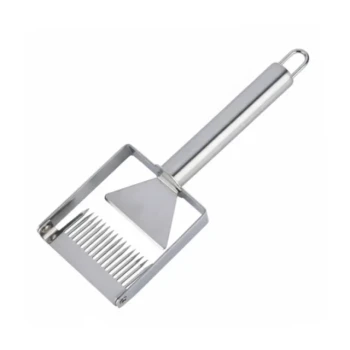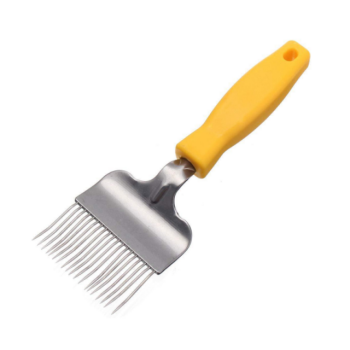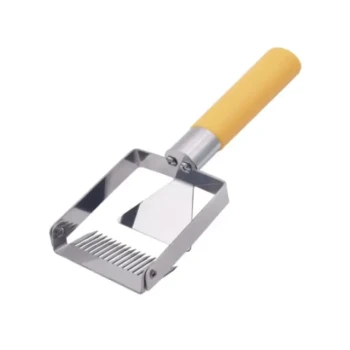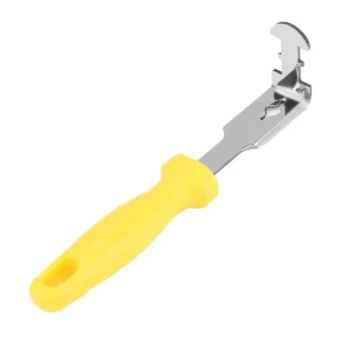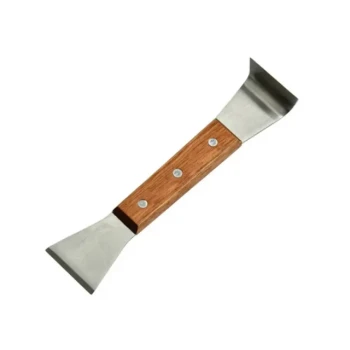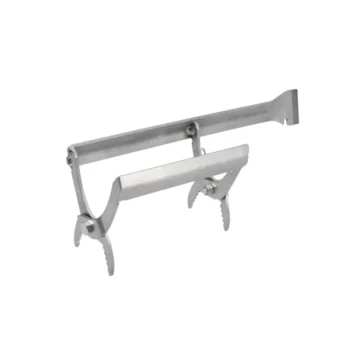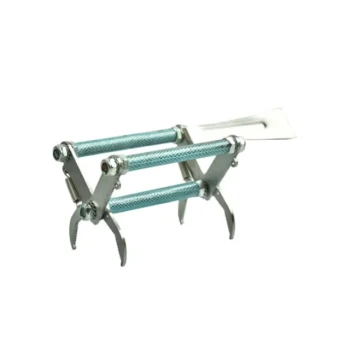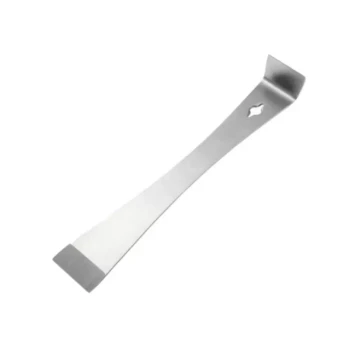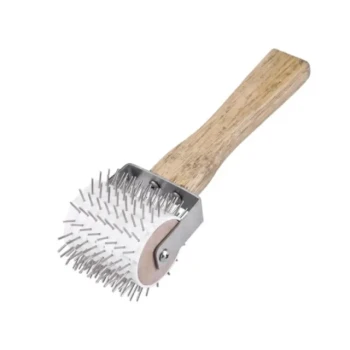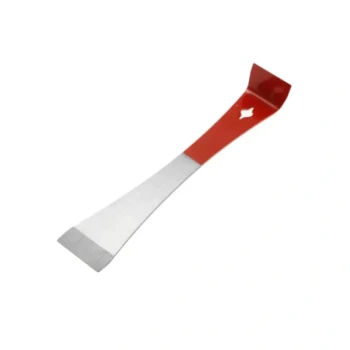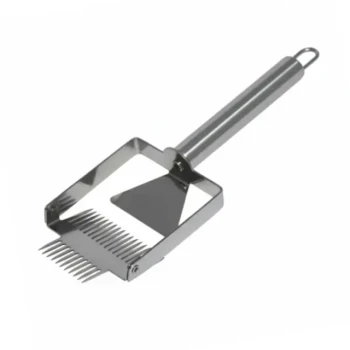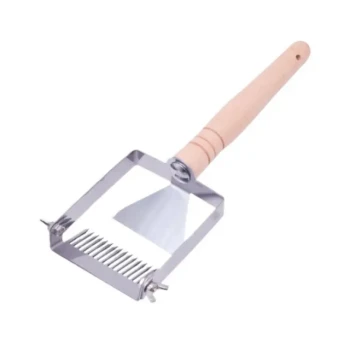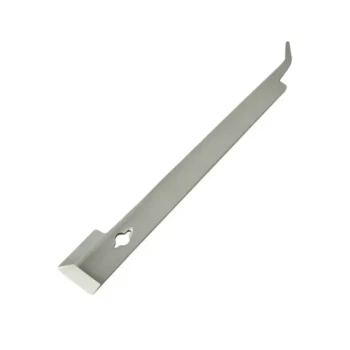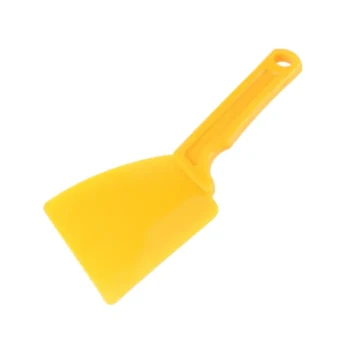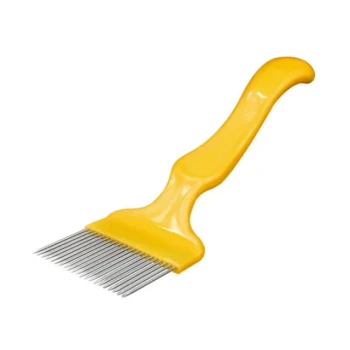Human interference has directly and intentionally reduced propolis collection in some honeybee populations. Through selective breeding, certain beekeepers have favored bees that gather less of this resinous "bee glue" to make hive management easier. This human-centric selection, however, raises significant questions about the colony's ability to defend itself against disease.
While breeding for low-propolis bees simplifies hive inspections for the beekeeper, it simultaneously strips the colony of its primary antimicrobial defense, potentially compromising the hive's collective "immune system" and long-term resilience.

The Drive to Reduce Propolis
Beekeepers' decisions have been the primary driver behind the reduction in propolis collection. The motivation is not malicious but rooted in practical convenience.
The Problem of "Bee Glue"
Propolis is an incredibly effective sealant and adhesive. Bees use it to seal cracks, smooth over rough surfaces, and reinforce the hive's structure.
For a beekeeper, this means frames get glued to the hive body, and hive boxes get cemented together. This makes inspections difficult, requiring a hive tool to pry components apart, which can disrupt and agitate the colony.
A Focus on Management Efficiency
To solve this problem, some breeders began to actively select for bee genetics that resulted in less propolis production. Hives from these queens are "cleaner" and far easier to work with, saving the beekeeper time and effort during routine inspections.
The Unintended Consequence: A Weakened Hive
While convenient for humans, reducing a colony's natural instinct to collect propolis has significant, and often detrimental, impacts on the bees themselves.
Propolis as the Hive's Immune System
Propolis is not just a structural material; it is the colony's external immune system. Collected from plant resins, it has powerful antimicrobial, antifungal, and antiviral properties.
Bees coat the entire interior of their hive with a thin layer of propolis, creating a sterile environment that inhibits the growth of pathogens. They also use it to mummify the carcasses of invaders too large to remove, preventing decay and disease.
Lower Propolis, Higher Vulnerability
Colonies that collect less propolis have a weaker chemical defense. This makes them more susceptible to a range of devastating bee diseases and pests.
The very act of selecting for a trait that benefits humans directly undermines a critical survival mechanism that bees have evolved over millennia to protect their superorganism.
Modern Hives and Natural Triggers
Human interference also extends to the hive's physical environment. Propolis collection is stimulated by rough surfaces, drafts, and small cracks.
Modern, precisely milled wooden hives often have smooth interior surfaces, providing fewer natural triggers for bees to apply propolis. This can compound the problem created by genetic selection, further discouraging its use.
Understanding the Trade-offs
The decision to favor or discourage propolis production represents a fundamental conflict between beekeeper convenience and the colony's natural health strategy.
The Benefit: Ease of Management
The primary advantage of low-propolis bees is clear: faster and less disruptive hive inspections. For commercial apiarists managing hundreds or thousands of colonies, this efficiency can translate into significant time and labor savings.
The Cost: Compromised Colony Defenses
The significant downside is a less resilient colony. Hives with a diminished propolis envelope may be more prone to infections, potentially requiring more chemical treatments or interventions from the beekeeper to survive. This creates a dependency on human assistance rather than fostering the colony's innate strength.
Making the Right Choice for Your Goal
As a beekeeper or observer, your philosophy on propolis will depend on your ultimate objective.
- If your primary focus is maximum management convenience: Selecting low-propolis bees can achieve this, but you must be prepared for increased vigilance against disease and potentially higher colony losses.
- If your primary focus is colony health and natural resilience: Favoring bees with strong propolis-gathering instincts and providing a hive environment that encourages it (like rough interior walls) will build a more robust and self-sufficient colony.
Ultimately, recognizing propolis as a vital asset rather than a nuisance empowers you to make choices that support the long-term health and vitality of your bees.
Summary Table:
| Impact of Human Interference | Key Outcome |
|---|---|
| Selective Breeding for Low Propolis | Easier hive inspections |
| Reduced Natural Propolis Use | Weakened antimicrobial defenses |
| Modern Hive Design | Fewer triggers for propolis application |
| Long-term Consequence | Increased colony vulnerability to disease |
Make an Informed Choice for Your Apiary's Health
As a commercial beekeeper or equipment distributor, the health of your colonies is paramount. The decision to encourage or discourage propolis collection directly impacts your bees' natural immunity and your operation's sustainability.
HONESTBEE understands this critical balance. We supply beekeeping supplies and equipment designed to support both efficient management and robust colony health. From hive components that encourage natural bee behaviors to tools that simplify working with propolis-rich hives, our wholesale-focused solutions are tailored for commercial apiaries and distributors.
Let us help you build more resilient, self-sufficient colonies.
Contact HONESTBEE today to discuss how our products can enhance your beekeeping operation's vitality and efficiency.
Visual Guide
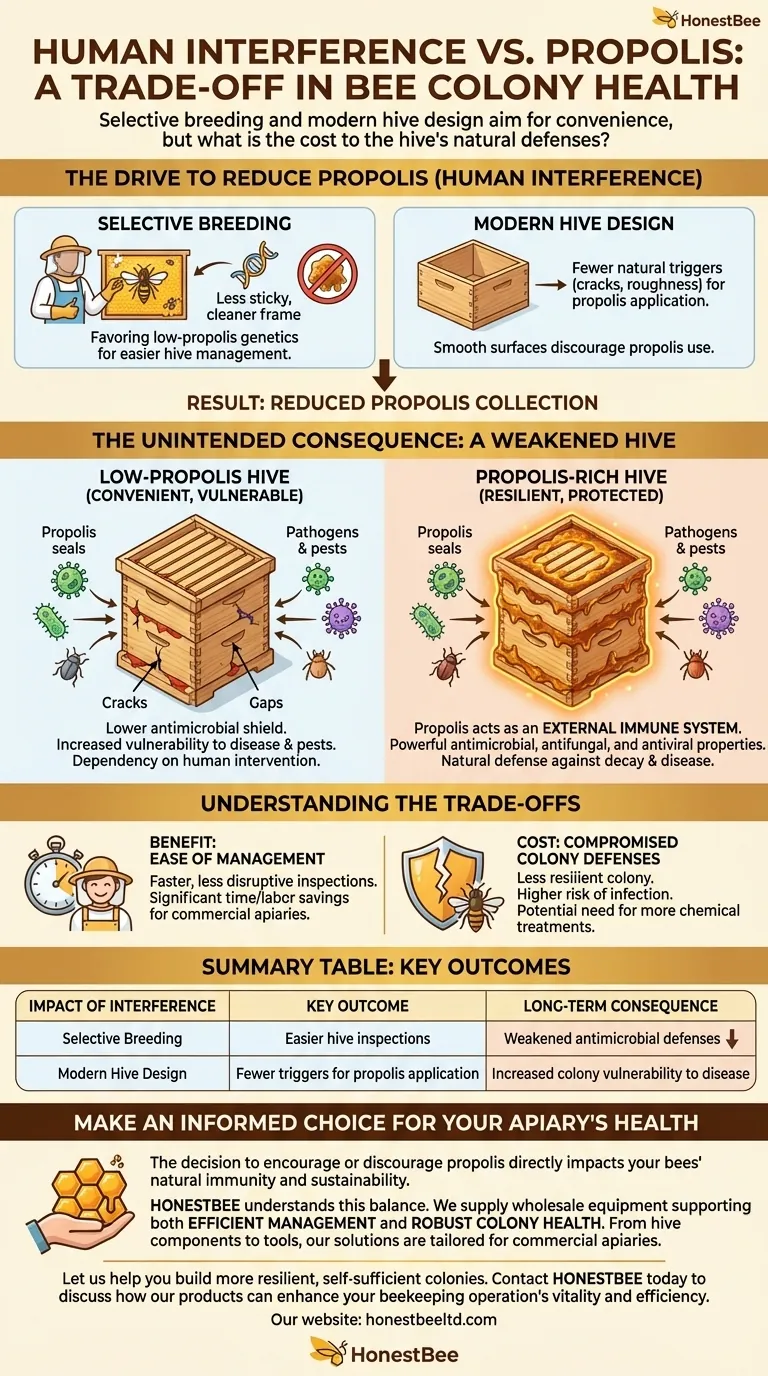
Related Products
- All-Stainless Steel Pivoting Honey Uncapping Fork for Beekeeping
- Professional Bent Tine Honey Uncapping Fork with Ergonomic Grip
- Stainless Steel Pivoting Honey Uncapping Fork with Plastic Handle
- Heavy Duty Stainless Steel Frame Cleaner with Plastic Handle
- Professional Dual-End Stainless Steel Hive Tool for Beekeeping
People Also Ask
- What is an uncapping tank used for in honey harvesting? Maximize Your Honey Yield and Minimize Waste
- What is the use of an uncapping fork? A Precision Tool for Hive Management and Honey Harvesting
- What should be checked before harvesting honey from a new hive? Ensure Colony Survival First
- What are the advantages of an uncapping fork? Achieve Precision Honey Harvesting for Your Apiary
- What is the primary use of an uncapping fork in beekeeping? A Guide to Precision Honey Harvesting
